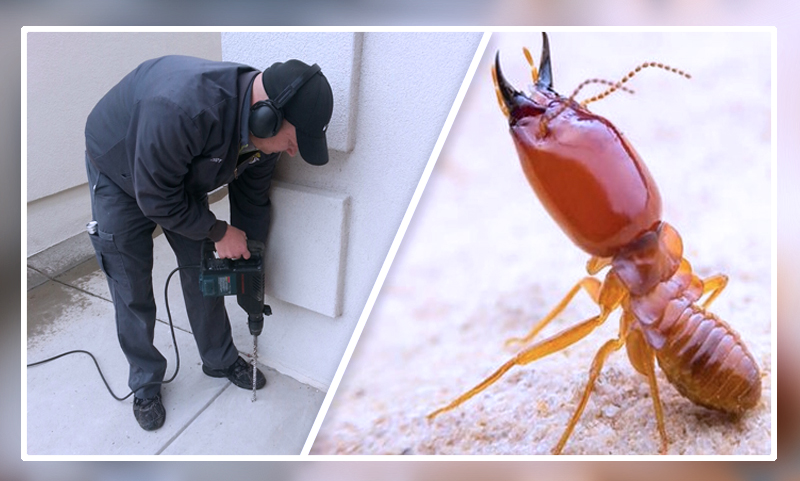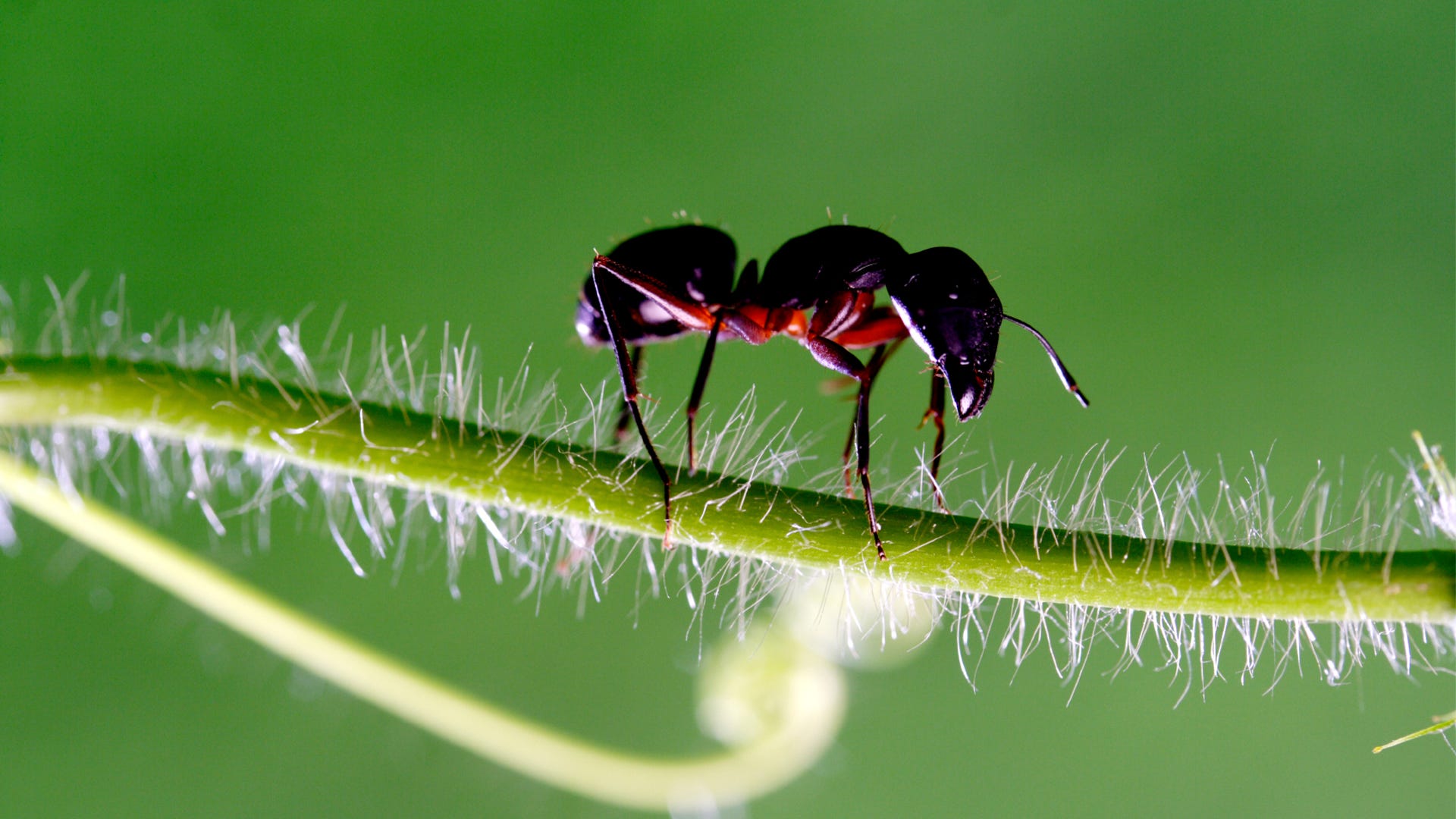Environmental Effect of Pest Control: Balancing Effectiveness With Sustainability
The environmental influence of parasite control is a vital concern that calls for a delicate balance in between achieving effectiveness in taking care of bugs and ensuring sustainability of our ecosystems. As we strive to protect our plants, homes, and health and wellness from the threats presented by bugs, the techniques we employ can inadvertently hurt the setting. From the use of dangerous chemicals that seep into our dirt and water to the unplanned effects on non-target varieties, the consequences of conventional bug control practices are far-reaching. There are emerging methods that use hope for a much more lasting technique to pest management. These remedies not just objective to attend to the immediate bug issues yet likewise consider the long-lasting health of our world.
Damaging Chemicals in Parasite Control
The application of hazardous chemicals in parasite control poses substantial environmental and health and wellness dangers that warrant cautious factor to consider and mitigation approaches. Herbicides, pesticides, and pesticides are frequently made use of to remove bugs, however their prevalent application can lead to unexpected consequences. These chemicals can pollute dirt, water sources, and the air, affecting not only the targeted parasites but likewise beneficial pests, wild animals, and humans.

To attend to these dangers, integrated insect monitoring (IPM) techniques are being promoted as an extra sustainable alternative. IPM involves a mix of techniques such as biological control, environment manipulation, and the targeted use pesticides as a last hope (ant controlmount holly nc). By taking on a holistic strategy to pest control, we can reduce the ecological and wellness influences related to harmful chemicals while effectively managing pest populaces
Effect on Non-Target Species
Taking into consideration the unintentional effects of bug control methods, the effect on non-target species is an important element that needs comprehensive examination. While insect control actions aim to target certain parasites, various other microorganisms in the environment might be unintentionally influenced. Non-target varieties, including advantageous bugs, birds, mammals, and even plants, can experience direct or indirect injury from pesticide applications or biological control methods.
Pesticides developed to combat a specific bug parasite may hurt pollinators like bees or all-natural predators such as ladybugs. Organic control agents, if not species-specific, can posture dangers to unintended targets, interfering with the eco-friendly balance.
To mitigate the effect on non-target varieties, integrated pest administration (IPM) techniques that highlight an alternative strategy to pest control are suggested. These approaches focus on making use of ecologically friendly techniques, lessening harm to advantageous organisms while successfully taking care of pest populaces. Performing detailed risk analyses and keeping track of the results of bug control initiatives are vital steps in guarding non-target species and promoting overall community health and wellness.
Dirt and Water Contamination
Unintended environmental consequences of parasite control methods prolong past impacting non-target species, with substantial implications for dirt and water contamination - termite control services. Pesticides, herbicides, and chemical fertilizers used in bug control can seep right into the soil and contaminate groundwater, posturing a danger to both aquatic and terrestrial ecological communities.
Water contamination is an additional important problem associated with parasite control methods. To read this article reduce dirt and water contamination from pest control activities, incorporated pest management methods that prioritize sustainability and lessen chemical inputs are vital.
Air Air Pollution From Pesticide Usage
Exposure to air-borne pesticides during farming applications positions a considerable issue for air contamination control actions. When pesticides are sprayed onto crops, they can volatilize right into the air and form unstable natural compounds (VOCs) and other airborne contaminants. These chemicals can add to the formation of ground-level ozone, a significant component of smoke that can have harmful impacts on human wellness, crop efficiency, and overall air high quality. Furthermore, chemical drift, where chemicals are carried by the wind to unintended locations, can bring about the contamination of neighboring communities and water bodies.

Strategies for Lasting Bug Control
In the world of farming practices, applying lasting insect control approaches is vital for maintaining environmental balance and securing plant returns. Sustainable insect control emphasizes making use of ecologically friendly techniques to manage bug populations efficiently while lessening harm to non-target organisms and ecosystems. Integrated Pest Monitoring (IPM) is a widely embraced strategy that combines organic, social, physical, and chemical control approaches to attain long-term parasite management options.
One secret approach in lasting bug control is promoting biodiversity within agroecosystems. By enhancing all-natural adversaries of parasites, such as killers and parasitoids, farmers can reduce the need for artificial pesticides. Plant turning and diversification are additionally reliable techniques to interrupt pest life cycles and create less beneficial problems for bugs to thrive. Additionally, making use of pest-resistant plant varieties and utilizing techniques like catch cropping can help in reducing bug stress without relying greatly on chemical interventions. Ultimately, by incorporating these sustainable parasite control approaches, farmers can attain an equilibrium in between pest management effectiveness and ecological stewardship.
Conclusion
Finally, the ecological influence of pest control approaches need to be thoroughly thought about to balance efficiency with sustainability. Hazardous chemicals made use of in parasite control can bring about dirt and water contamination, air contamination, and harm non-target types - termite control. It is crucial to implement lasting pest control strategies to decrease these unfavorable effects on the environment and advertise a much healthier ecological community for future generations
By adopting an alternative technique to pest control, we can decrease the environmental and health and wellness effects associated with dangerous chemicals while successfully handling pest populations.

To mitigate the air pollution created by chemical use, it is vital to take on incorporated bug administration techniques that prioritize the usage of non-chemical parasite control techniques, such as crop rotation, natural killers, and resistant crop selections. Sustainable bug control highlights the use of eco pleasant methods to handle insect populations properly while lessening harm to non-target microorganisms and ecosystems. Integrated Parasite Monitoring (IPM) is a widely adopted method that integrates organic, social, physical, and chemical control approaches to attain long-lasting pest monitoring options.